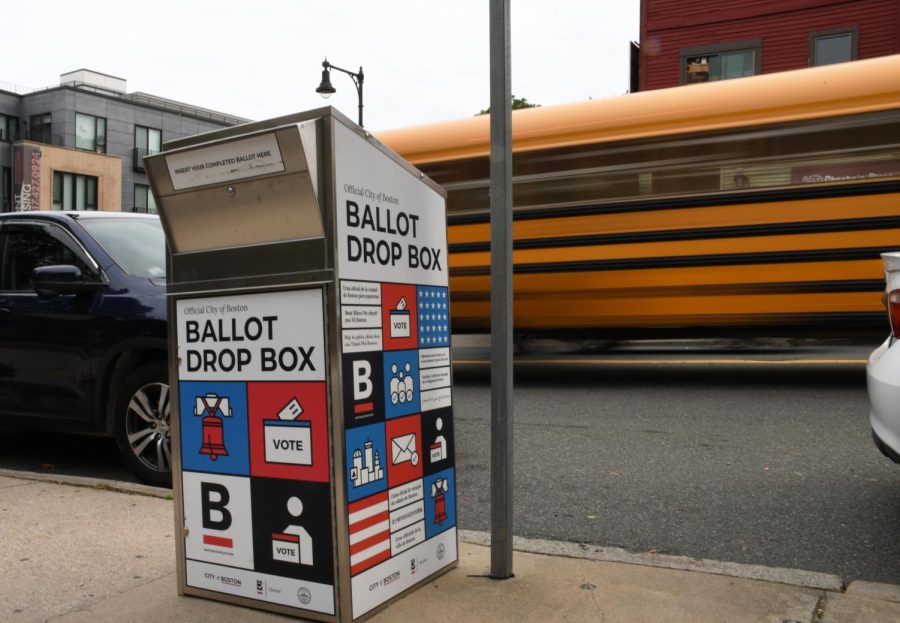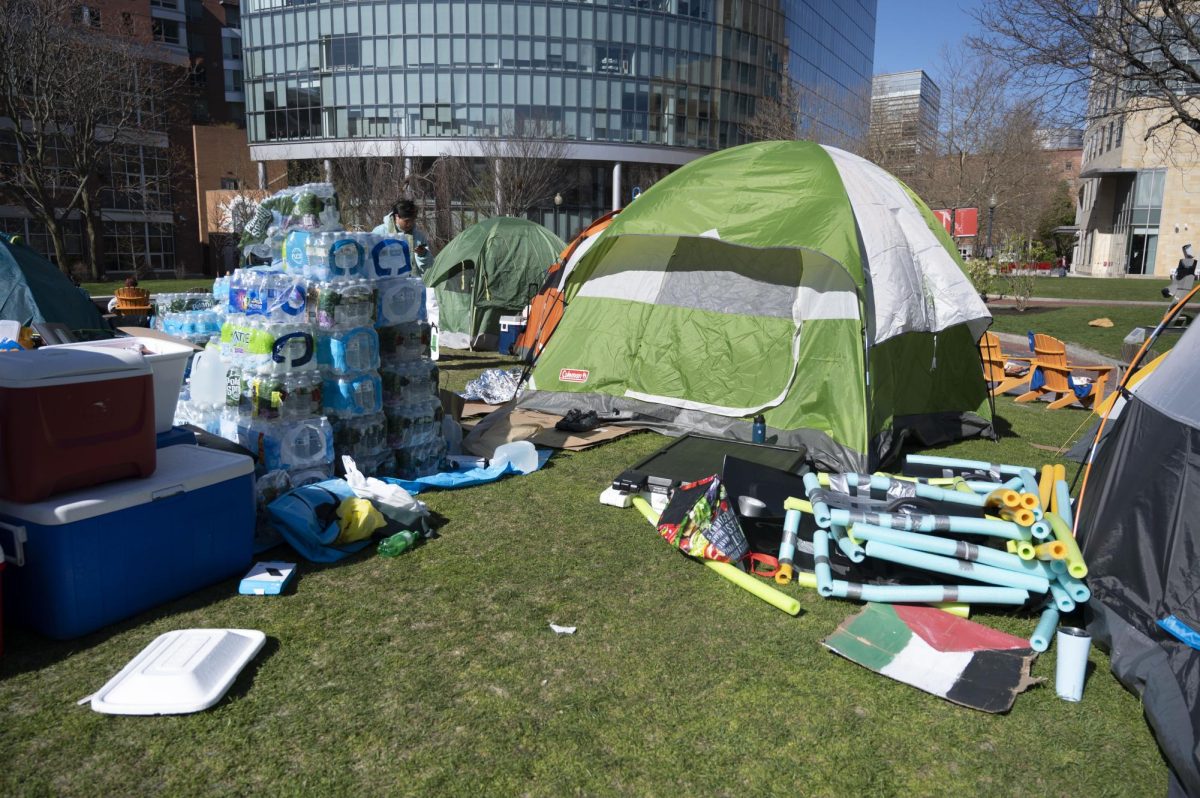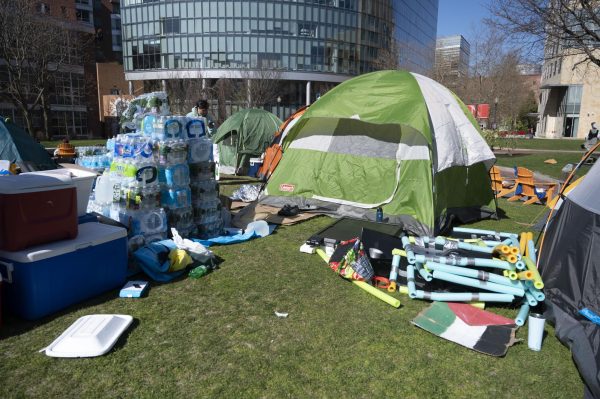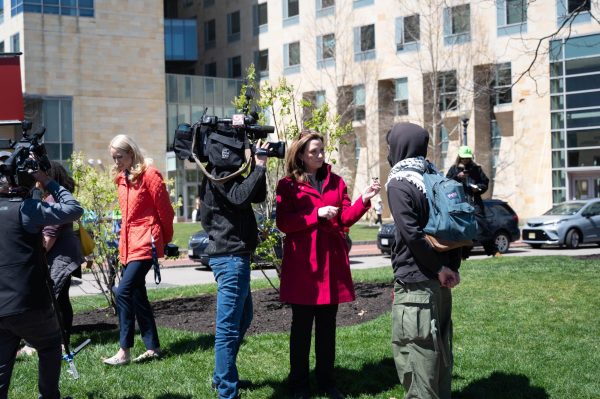Law that lowers voting age to 16 in Boston stalls in committee
Boston City Councilors Julia Mejia and Kenzie Bok have proposed a home rule petition that would allow 16- and 17-year-olds to vote in all Boston mayoral and municipal elections. Photo credit Avery Bleichfeld.
April 9, 2022
Boston City Councilors Julia Mejia and Kenzie Bok have proposed a home rule petition that would allow 16- and 17-year-olds to vote in all Boston mayoral and municipal elections.
The special law was discussed in a city council meeting March 16. Mejia and Bok first presented the home rule petition in 2021 after Rep. Ayanna Pressley introduced similar legislation to lower the voting age in federal elections from 18 to 16 in 2019. Pressley’s proposal was ultimately denied and re-introduced in 2021. If Presely’s amendment is passed, 16-year-olds will be able to vote in congressional and presidential elections.
The home rule petition was referred to the Committee of Government Operations January 26, 2022. Before the city council meeting on March 16, the committee held a hearing on March 15 to discuss the matter . If the petition is passed, 16 and 17-year-old Boston residents will be added to a separate list of voters until they reach the state’s legal age of 18-years-old. They would have to meet all qualifications of state law to vote, excluding its age requirement.
“Young people want to be engaged, they are mature and understand what is at stake for them,” said Mejia during the city council meeting. “They’re working, paying taxes, oftentimes working two to three jobs just to help support their families. We need to do right by them and make sure we support this effort.”
In past municipal and mayoral elections, voter turnout has been meager. In the 2021 mayoral election, 23.9% of eligible voters participated. Boston city councilors are hopeful that with the addition of 16- and 17-year-old residents, voter turnout will increase in future elections.
“We offer the ability to vote at one of the greatest dislocations in life,” said Bok, who represents District 8. “At 18, you are facing changes in your life such as college, work and living situations. It’s almost as if we’re minimizing turnout by offering eligibility to vote at 18.”
Bok, along with her supporting council members, believes that instilling civic duties such as voting at a young age will result in long-time active voters.
“Active citizenship leads to a stronger democracy,” Bok said.
Vote16USA is a national campaign that supports lowering the voting age on a local level. The campaign works to make change locally so that the issue will eventually gain national prominence. Vote16USA was started by Generation Citizen, a civic and social organization working to increase effective civic education in the United States.
In 2019, Vote16USA aided a campaign for the Ensuring Municipal Participation of the Widest Eligible Range, or EMPOWER, act to be implemented in Massachusetts. The EMPOWER act would give all cities and towns in Massachusetts the option to allow 16- and 17-year-olds to vote in their municipal elections without needing to pass a home rule petition. No further action has been taken on this bill since January 2021.
Andrew Wilkes, the chief policy advisor and advocacy officer for Generation Citizen, oversees the work of Vote16USA.
“This is an effort to empower youth leaders to get involved in government,” Wilkes said.
Wilkes advocated that the EMPOWER act and Boston’s home rule petition would “help to supercharge and incentivize civics education and young people’s participation in government.”
In 2013, Tacoma Park, Maryland, lowered its voting age for all city elections to 16 years old.
“[The change] resulted in 16-year-olds voting at higher rates than their 18-year-old companions,” Wilkes said.
However, an article from the Boston Globe, written by columnist Jeff Jacoby, argues that maximizing voter turnout is not a valid reason for allowing 16-year-olds to vote. Jacoby states that the opposite — raising the voting age — would actually maximize the voter turnout because “participation in elections rises as the concerns of adulthood rise.” In 2018, 64% of voters ages 65 and above participated in the midterm elections in comparison to only 30% of voters aged 18 to 24.
Many Massachusetts citizens do not believe that lowering the legal voting age will benefit the state or its 16- and 17-year-old residents. A survey conducted by Western New England University Polling Institute in 2019 found that 52% of adults oppose lowering the voting age in local elections. Of those opposed, 51% stated their reasoning to be that 16- and 17-year-olds were mature enough to vote.
Reet Pandit, a first-year history, culture, and law student at Northeastern University is also unsure of whether the voting age should be lowered.
“I was unsure of my political views at 16,” Pandit said. “I just feel like lowering the voting age won’t ultimately affect elections in a way that everyone thinks it will.”


















